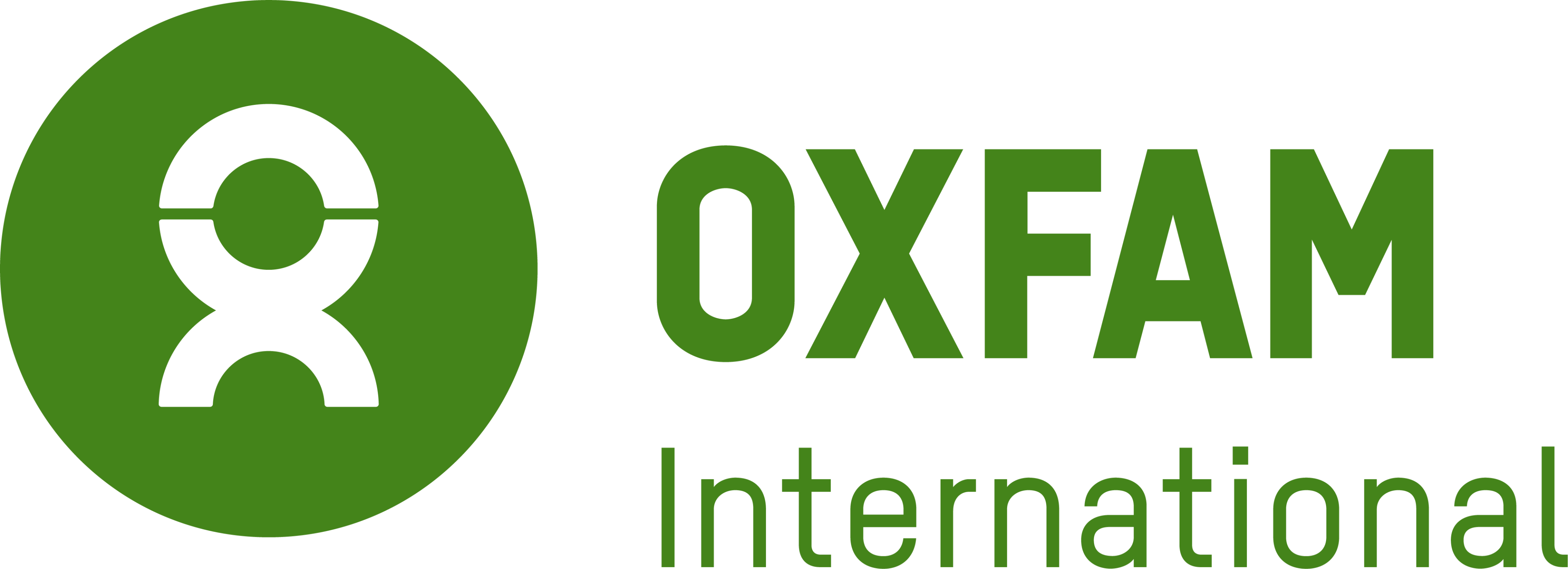Voices From
Gaza
One year on
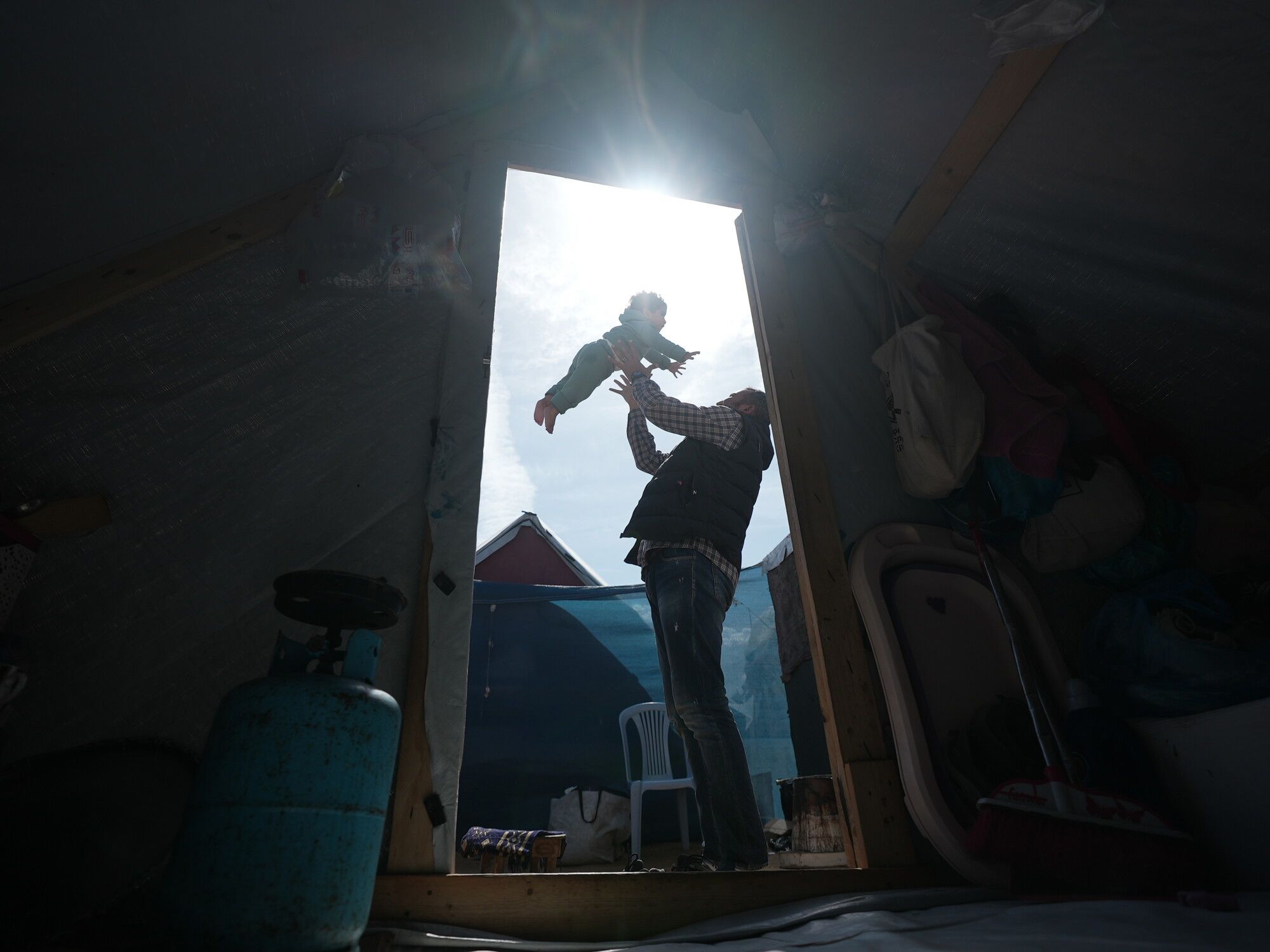
Voices From
Gaza
One year on

It has been a year since Israel’s devastation of Gaza began
Its military assault began last October, following the targeted attacks by Hamas and other Palestinian armed groups that killed almost 1,200 Israelis and foreign nationals. These attacks constituted serious violations of International Humanitarian Law (IHL). More than 250 people were taken hostage, and around 100 are reported to still be held in Gaza.
Since then, Israel has bombarded the Gaza Strip causing enormous destruction, killing more than 41,000 people, and committing serious violations of international law. Almost two million people have been driven from their homes to so-called ‘safe zones’, which have also been attacked, some up to a dozen times. The constant attacks have damaged more than 370,000 homes, including 79,000 houses that were completely destroyed.
Civilian infrastructure has been decimated by Israel’s relentless attacks, with Oxfam analysis finding infrastructure like schools, hospitals and aid distribution points has been hit by explosive weapons once every three hours. Meanwhile, around 68% of cropland and roads have also been hit severely damaged or completely destroyed, and more than 68% of water and sanitation infrastructure has also been damaged.
In the occupied West Bank, the unprecedented escalation and levels of violence are raising concerns that serious violations of international law and war crimes are being committed. Since last October, more than 680 Palestinians have been killed either by Israeli settler or military violence.
More than a thousand settler attacks on Palestinians have been recorded, with direct attacks on agricultural land resulting in the destruction of crops, irrigation systems and greenhouses, including internationally-funded and Oxfam-supported projects. The Israeli military has forced the demolition of more than 2,000 Palestinian homes with massive damage to public infrastructure including roads.
Oxfam, alongside its partners, is responding to the dire humanitarian needs across the Occupied Palestinian Territory, delivering food, water, and basic supplies, as well as repairing water and sanitation infrastructure, and providing support to the most vulnerable groups. Within the first year of the response, we have reached 776,917 Palestinians in Gaza with essential support.
But it’s nowhere near enough. One year after Israel's war on Gaza began, the humanitarian crisis has reached catastrophic levels.
Forced Displacement
On October 13, Israel issued evacuation orders for all of northern Gaza, forcing about 1.1 million Palestinians from their homes within 24-hours to areas in the south that lacked adequate shelter and humanitarian support.
As people fled, so-called ‘safe’ routes along which they travelled, Israel attacked them from the air and ground. As the Israeli ground invasion progressed south, more mass evacuation orders were issued, forcing families to relocate, some more than 10 times.
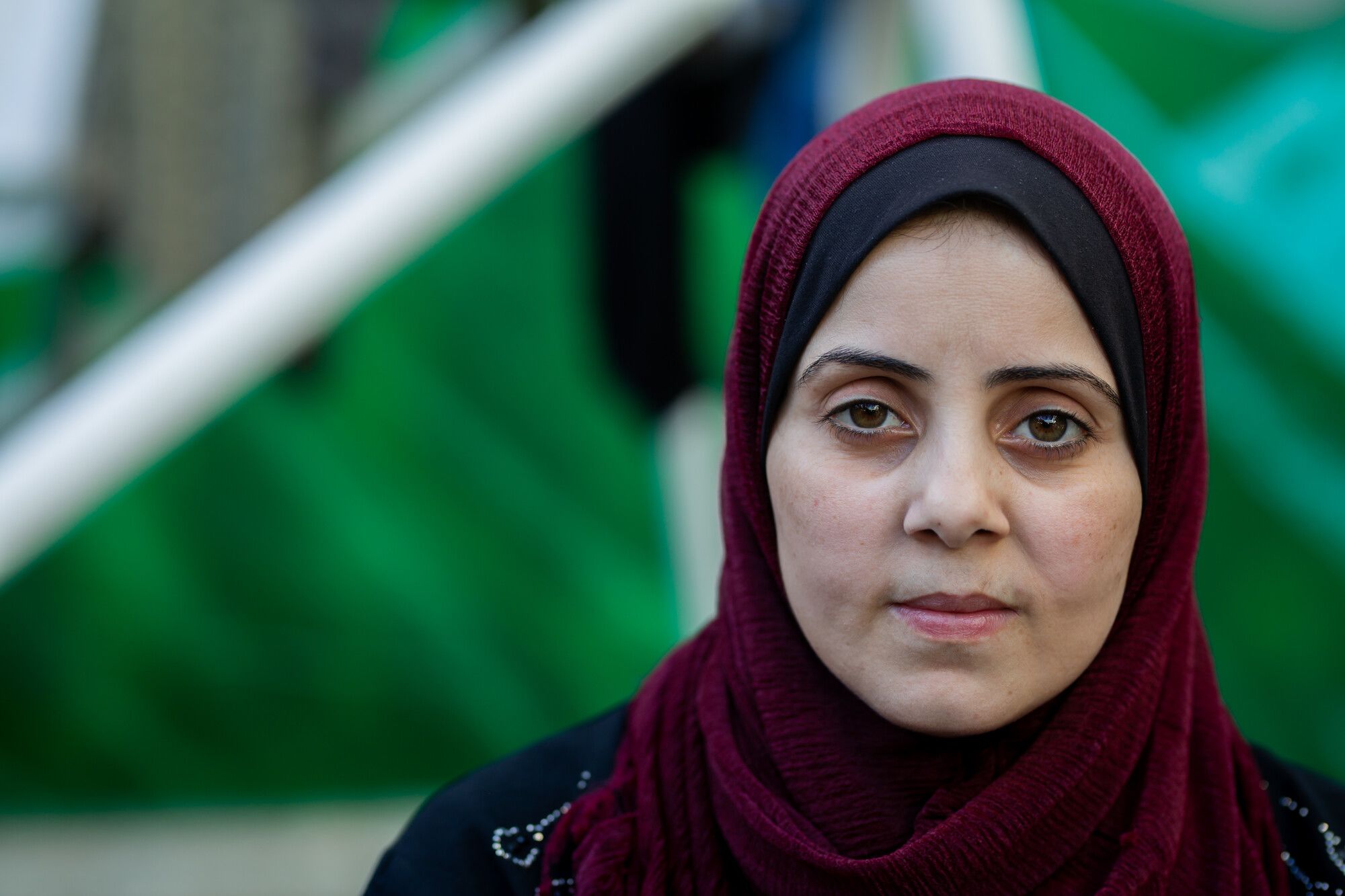
Oxfam and other international organisations have highlighted that these evacuation orders violated International Humanitarian Law because they failed to ensure safe travel routes, viable destinations for meeting basic humanitarian needs, or guarantees of return once hostilities ceased.
This legal violation is known as ‘forcible transfer’, and is grave breach of law, and classified as both a war crime and a crime against humanity.
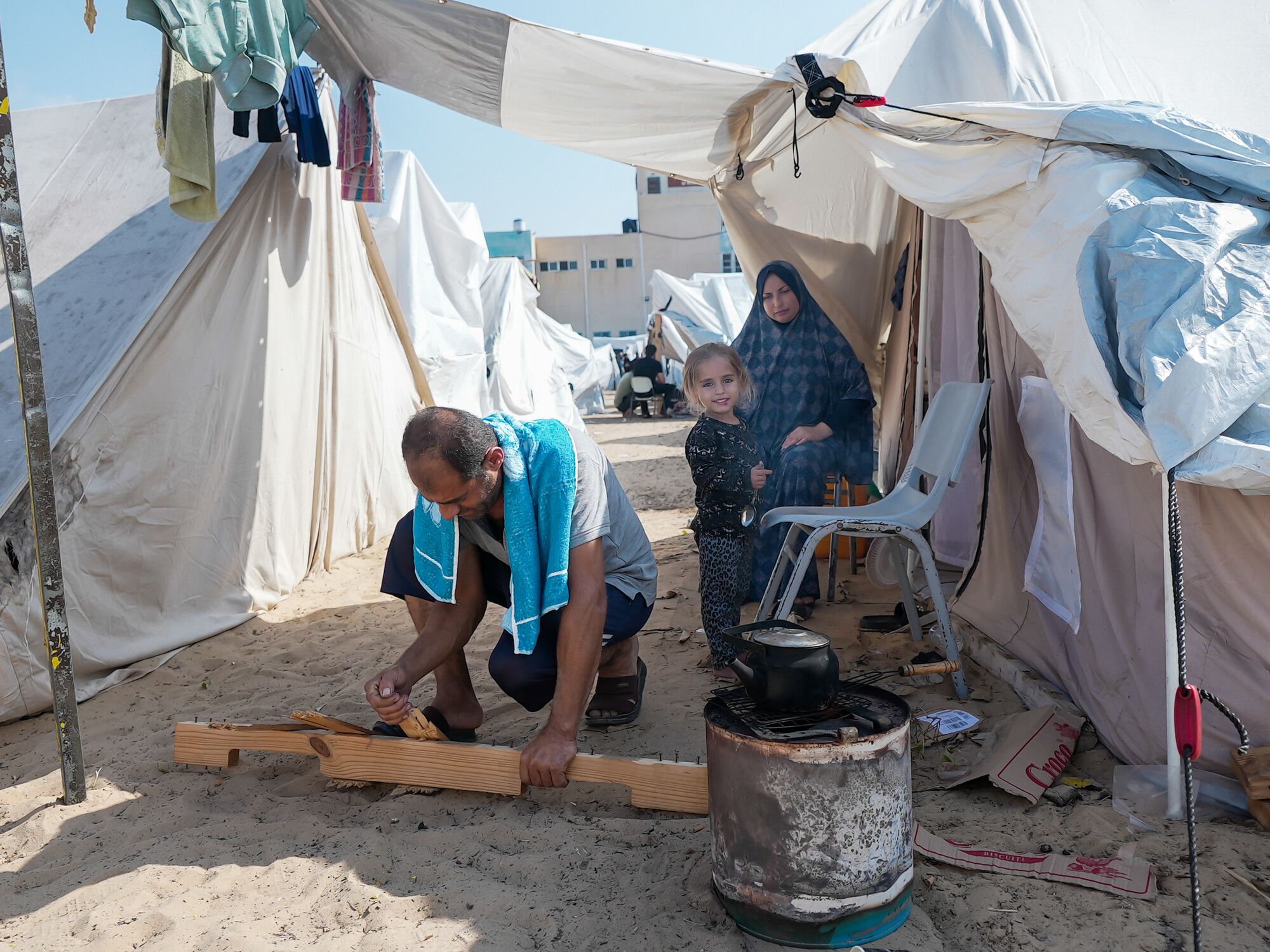
Starvation
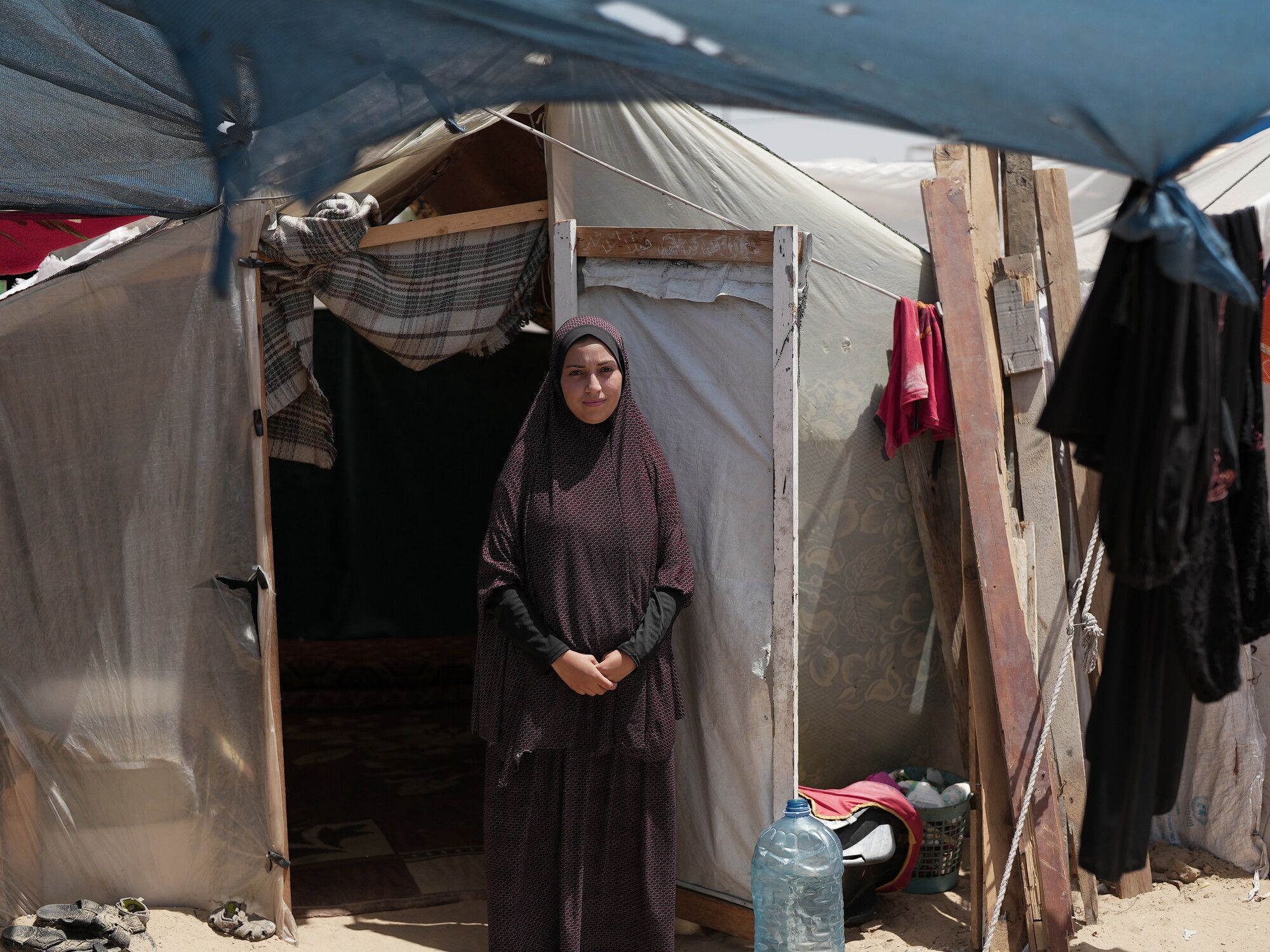
The food situation across Gaza is catastrophic, particularly in the north where children are starving to death and famine is now imminent as a result of the Israeli onslaught. Where food is available, prices are skyrocketing, making it unaffordable for people who have extremely limited access to cash and who have lost sources of income. Children are going entire days without eating.
A June report from the global body that assesses famine risk, Global Integrated Food Security Phase Classification (IPC) found almost all of Gaza's residents don’t have enough food to eat, with about half a million people facing starvation. Tragically, children and babies have already starved to death.
The desperate situation has been fueled by the ongoing conflict and Israel severely restricting humanitarian access, as essential supplies like food, water, and fuel are systematically denied entry to Gaza. Israel is using starvation as a weapon of war in a blatant violation of International Humanitarian Law.
Israeli military attacks have also devastated Gaza’s agricultural production, leaving many people dependent on the insufficient food aid that can get in, which is mostly canned goods and flour. Oxfam’s partners have described the harrowing reality in the worst hit areas in the north, with people resorting to drinking toilet water, foraging for wild plants, and using animal fodder to bake bread.
And as hundreds of trucks filled with food wait at crossings into Gaza, delayed by Israel’s bureaucratic obstructions, the situation grows increasingly desperate.
Oxfam and its partners have been working around the clock to support those most in need, including children and their families. In the past year, we distributed life-saving food and livelihood assistance to 309,095 people in different areas in the Gaza Strip.
While we are doing all we can to support families, full humanitarian access is needed to scale up our response.
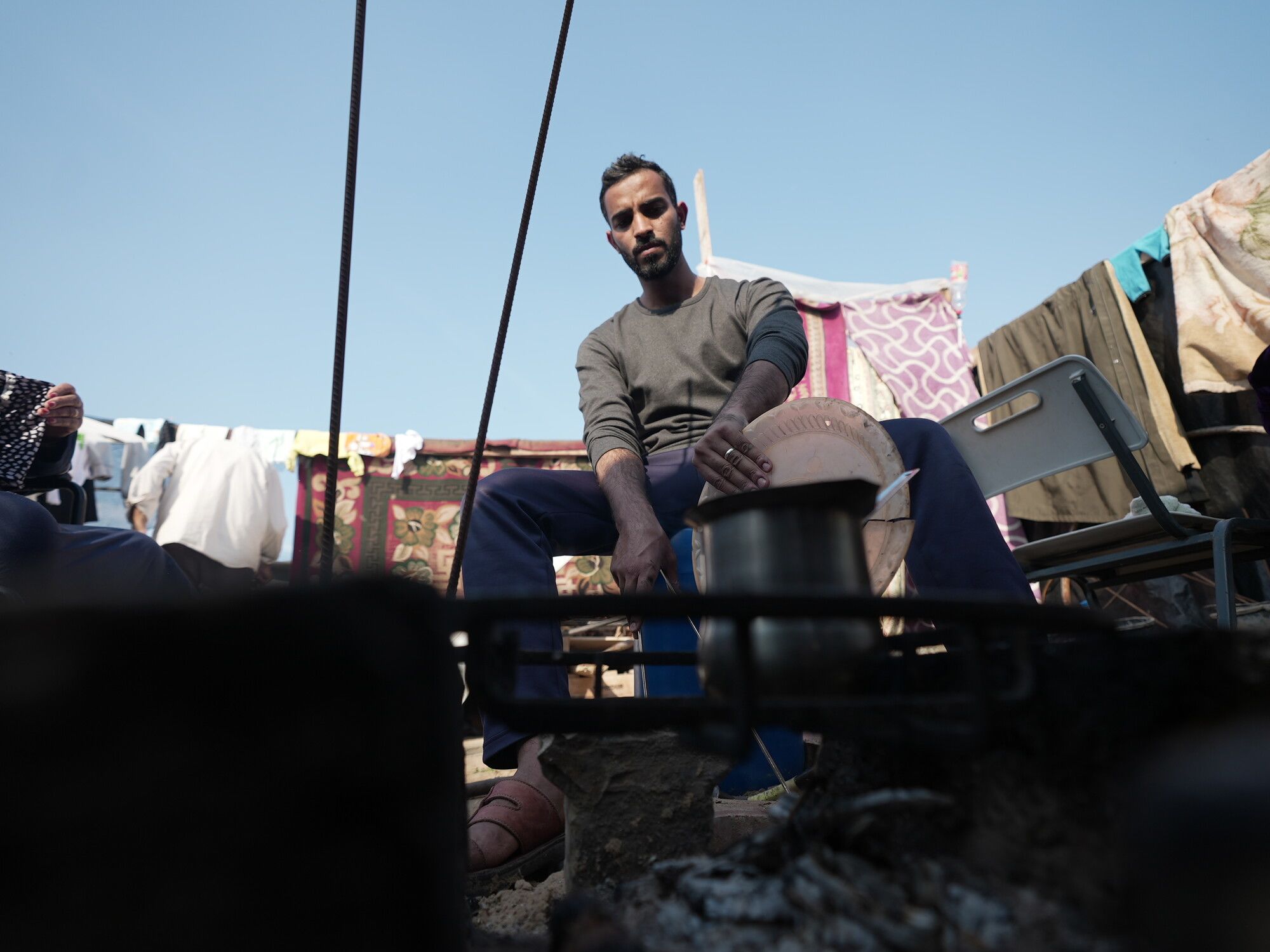
Water War Crimes
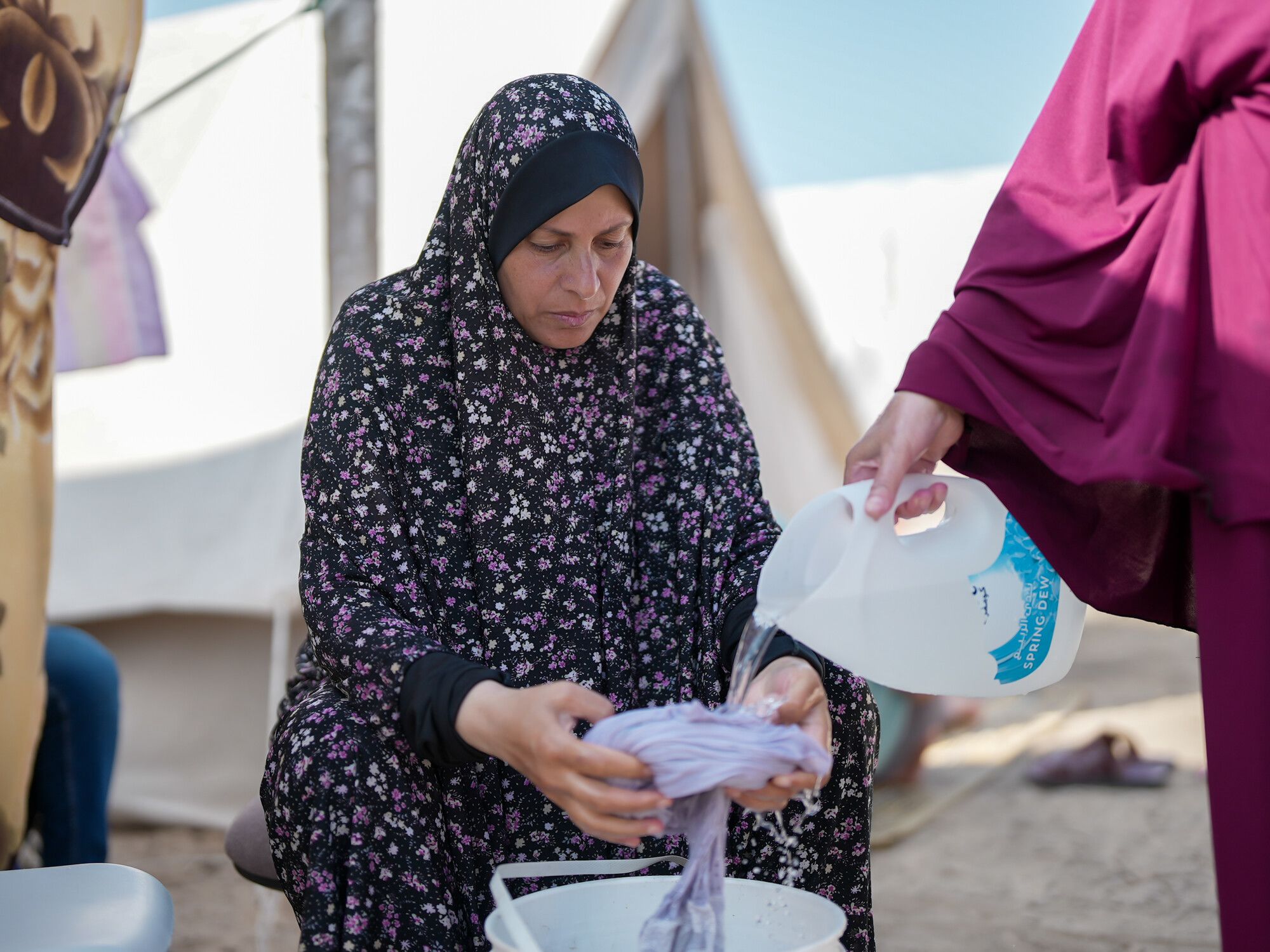
One year into the war on Gaza, Israel has left more than two million people with less than 6% of their pre-war water supply.
An Oxfam report found that Israel’s cutting of external water supply, systematic destruction of water facilities and deliberate aid obstruction have reduced the amount of water available in Gaza to 4.74 litres a day per person – just under a third of the recommended minimum in emergencies and less than a single toilet flush.
The report also found that Israeli military attacks have damaged or destroyed five water and sanitation infrastructure sites every three days since the start of the war.
Israel has destroyed 70% of all sewage pumps and 100% of all wastewater treatment plants, as well as the main water quality testing laboratories in Gaza, and restricted the entry of Oxfam water testing equipment.
The extreme lack of clean water and sanitation is having a dire impact on Palestinians’ health, with more than a quarter (26%) of the population falling severely ill from easily preventable diseases and polio, a once eradicated disease, re-emerging in Gaza.
Oxfam is calling for urgent action including an immediate and permanent ceasefire; for Israel to allow a full and unfettered humanitarian response; and for Israel to foot the reconstruction bill for water and sanitation infrastructure.
Within the first year of the response, Oxfam and our partners have provided water trucking and water and sanitation services, including repairs, to 682,718 people in Gaza.
Healthcare
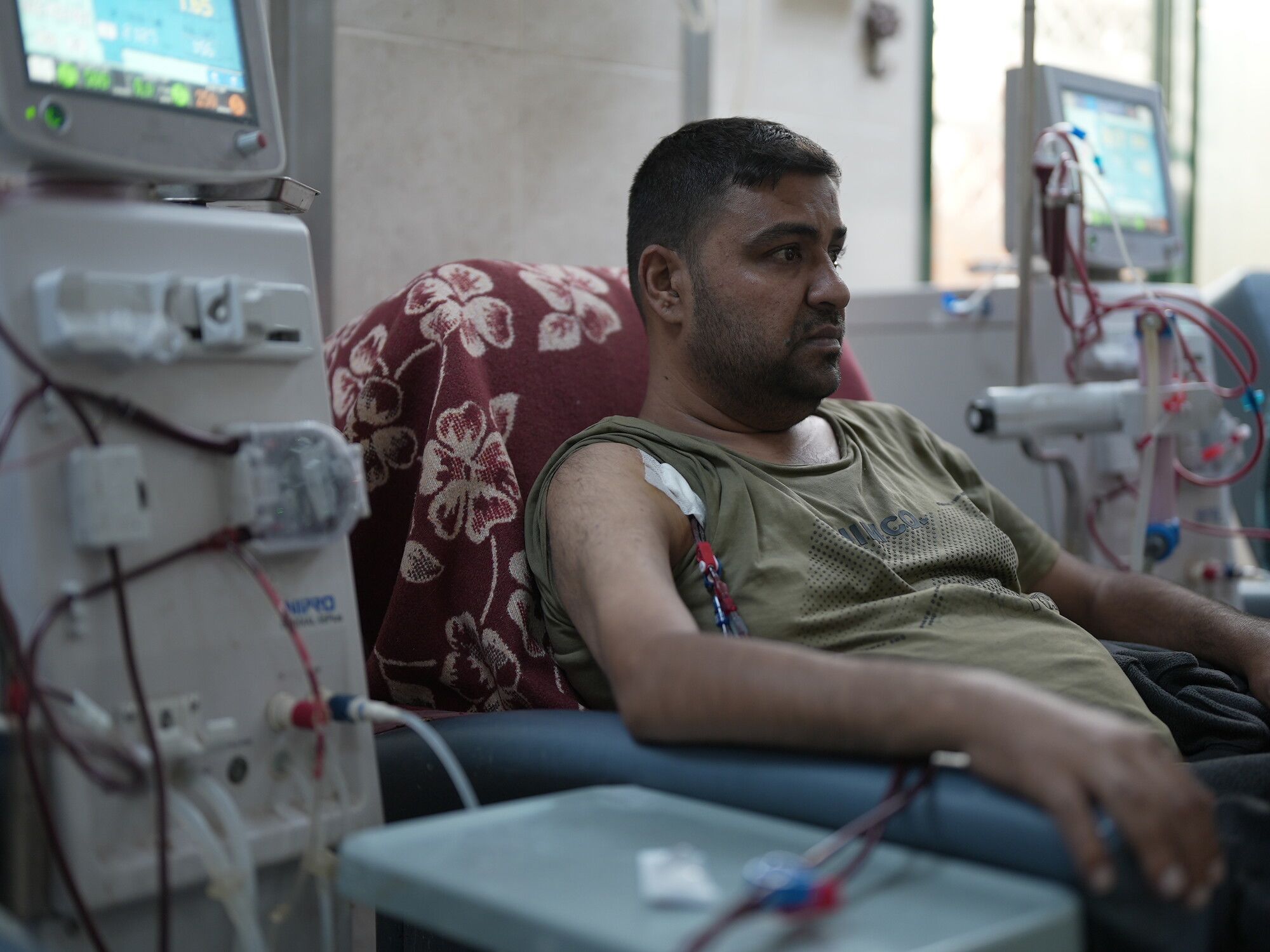
Gaza’s healthcare system is in ruins as a result of Israeli bombardment, with health care centres and ambulances destroyed, many medical staff displaced, and most major hospital’s left unable to operate.
While more than 41,000 Palestinians in Gaza have been confirmed killed by Israeli attacks, around 96,000 have sustained injuries, at least a quarter of which have been declared ‘life-changing’ and requiring ongoing care and rehabilitation by the World Health Organization. Yet only 17 of 36 hospitals remain partially functional, while all suffer from a lack of fuel, medical supplies, and clean water.
Between October 2023 and June 2024, the Israeli war on Gaza led to extensive damage to the healthcare infrastructure. A total of 464 healthcare facilities were attacked, resulting in the deaths of 727 healthcare workers and injuries to another 933. The situation was further compounded by significant damage to 113 ambulances, disabling them from responding to any health incident. One of the largest hospitals in Gaza, Al Shifa Hospital, now operates with severely limited resources; only 200 hospital beds are available for an overwhelming 350,000 people. This acute shortage has pushed many into seeking help in overcrowded hospitals, barely equipped to handle the basic needs of the patients they now serve.
Many women are unable to access essential sexual and reproductive healthcare, including about 155,000 pregnant and breastfeeding women. In the absence of medical support, patients lie on the floors of overcrowded field hospitals, and many are left to give birth in shelters lacking basic hygiene and sanitation.
Aid Obstruction: the struggle to deliver aid under siege and bombardment
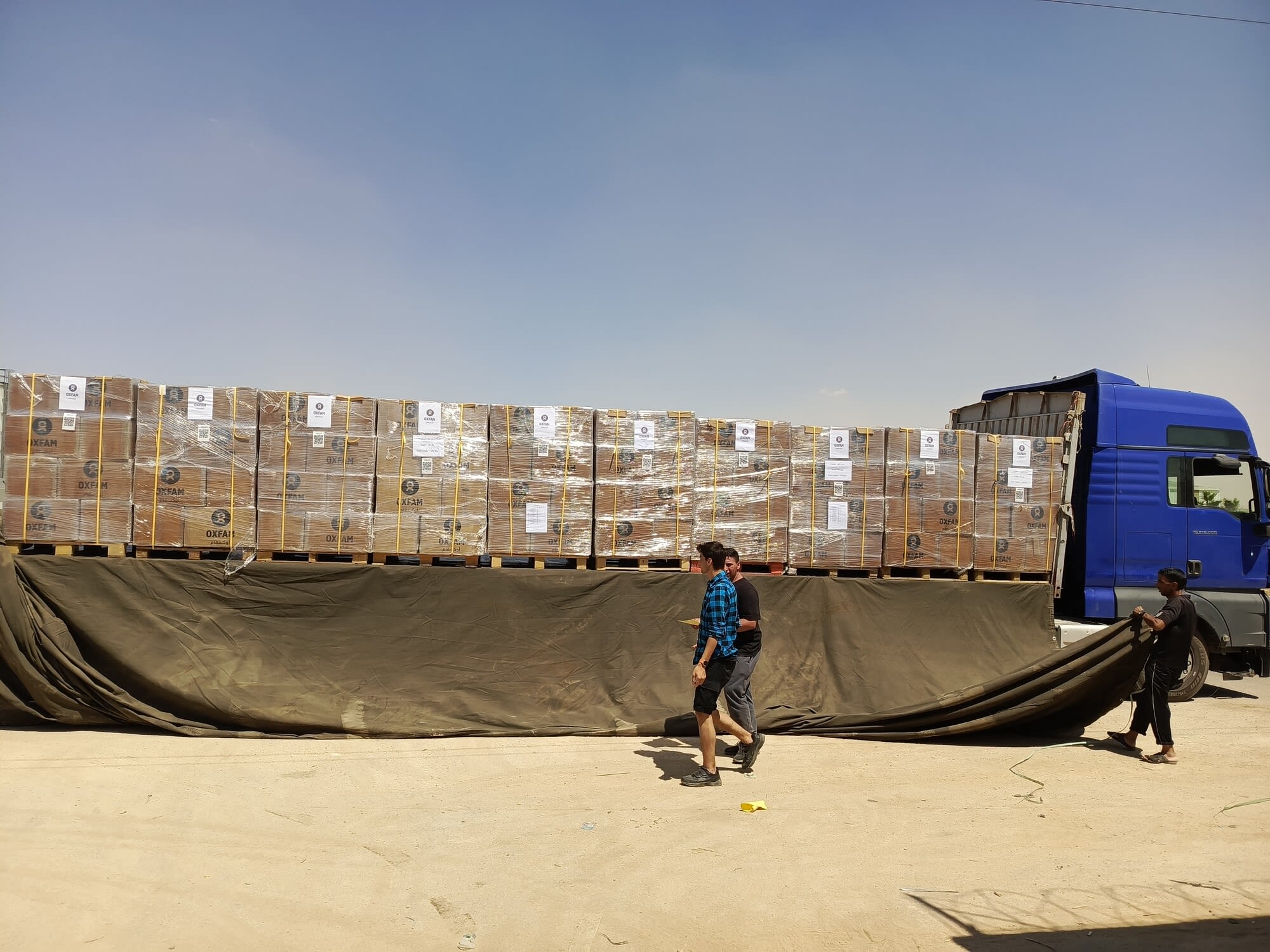
As 2.1 million people, half of them children, face life-threatening deprivation every day, Israeli authorities continue to block, delay and restrict humanitarian aid, worsening the catastrophe. Israel’s siege now blocks 83% of food aid reaching Gaza.
As Israel’s blockade of Gaza extends beyond 17 years, residents now find themselves living under a total siege, with access to essentials including food and medicine now severely limited due to Israel's control over all access points.
Key crossings are frequently closed and aid convoys often delayed or denied entry, turning a prolonged siege into a form of collective punishment denying an entire civilian population medical care, food and water with Israel using starvation as a weapon of war.
As the occupying power, Israel is legally obligated to ensure the basic needs of Gaza’s residents are met, and must actively guarantee the continuous and uninterrupted supply of all aid. All parties must facilitate the access of aid into Gaza and right now, Israeli authorities are strangling access into and around Gaza to the point where people are starving to death.
International humanitarian law requires the protection of aid workers and facilities, but Israeli forces have repeatedly violated these laws by targeting warehouses, hospitals, and aid convoys, resulting in the deaths of more than 280 aid workers and leaving many areas unsafe for aid delivery.
This is by far the deadliest emergency for aid workers in recent history and highly experienced workers say this is the most complex and dangerous response they have ever worked on. Records show that Israeli explosive weapons hit, on average aid distribution points and warehouses every 15 days.
Oxfam has mounted a humanitarian response despite unprecedented challenges. Along with partner organisations in Gaza, Oxfam has delivered cash, food, water, essential basic items and restored water and sanitation services. But it is not nearly enough to meet the massive needs. Humanitarian aid must be allowed to flow, in safety, to those most in need.
The international community must increase pressure on Israel to release its stranglehold on aid delivery, by allowing unrestricted humanitarian access and lifting the blockade. We also need a ceasefire to prevent worsening suffering in Gaza.
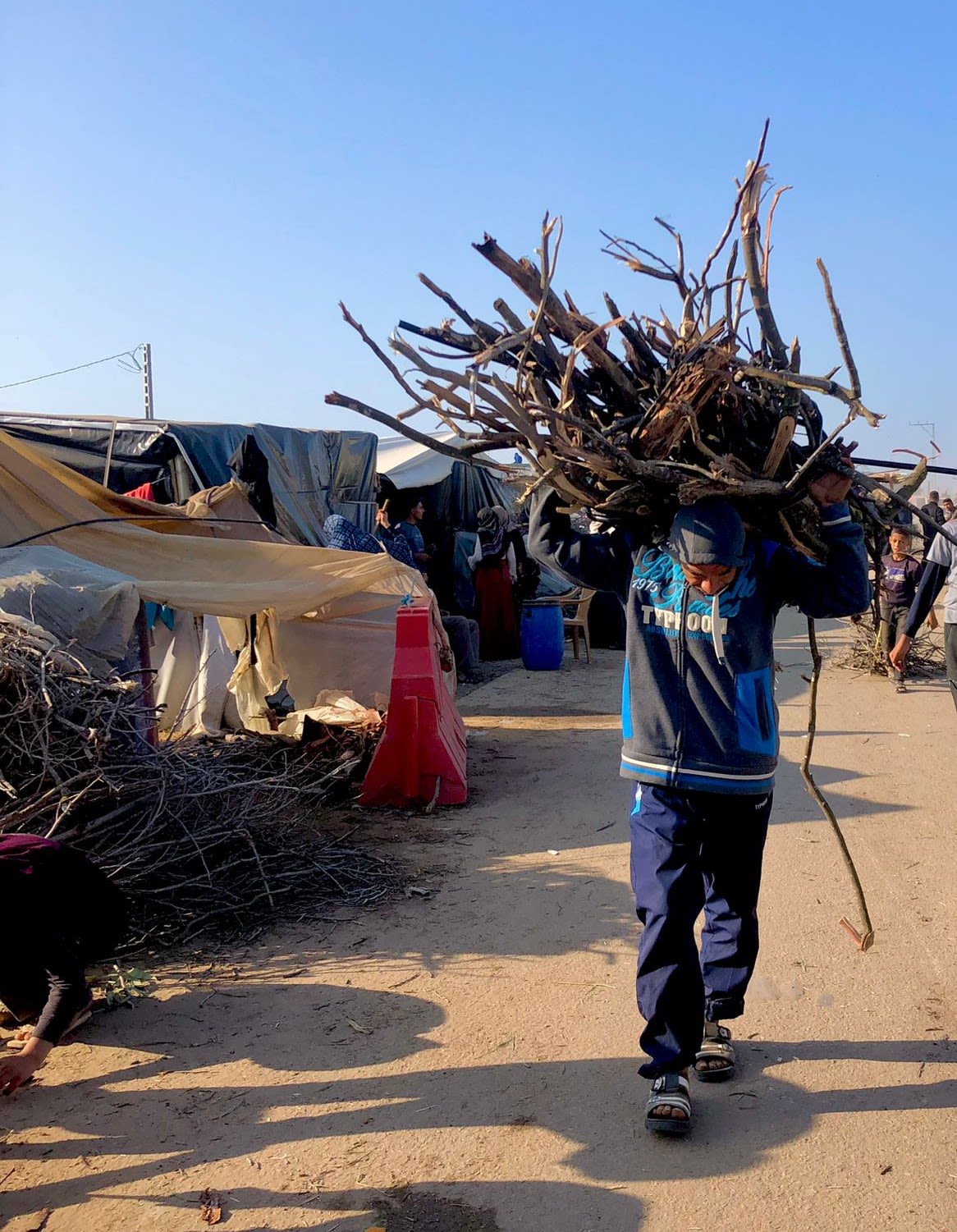
War on Women
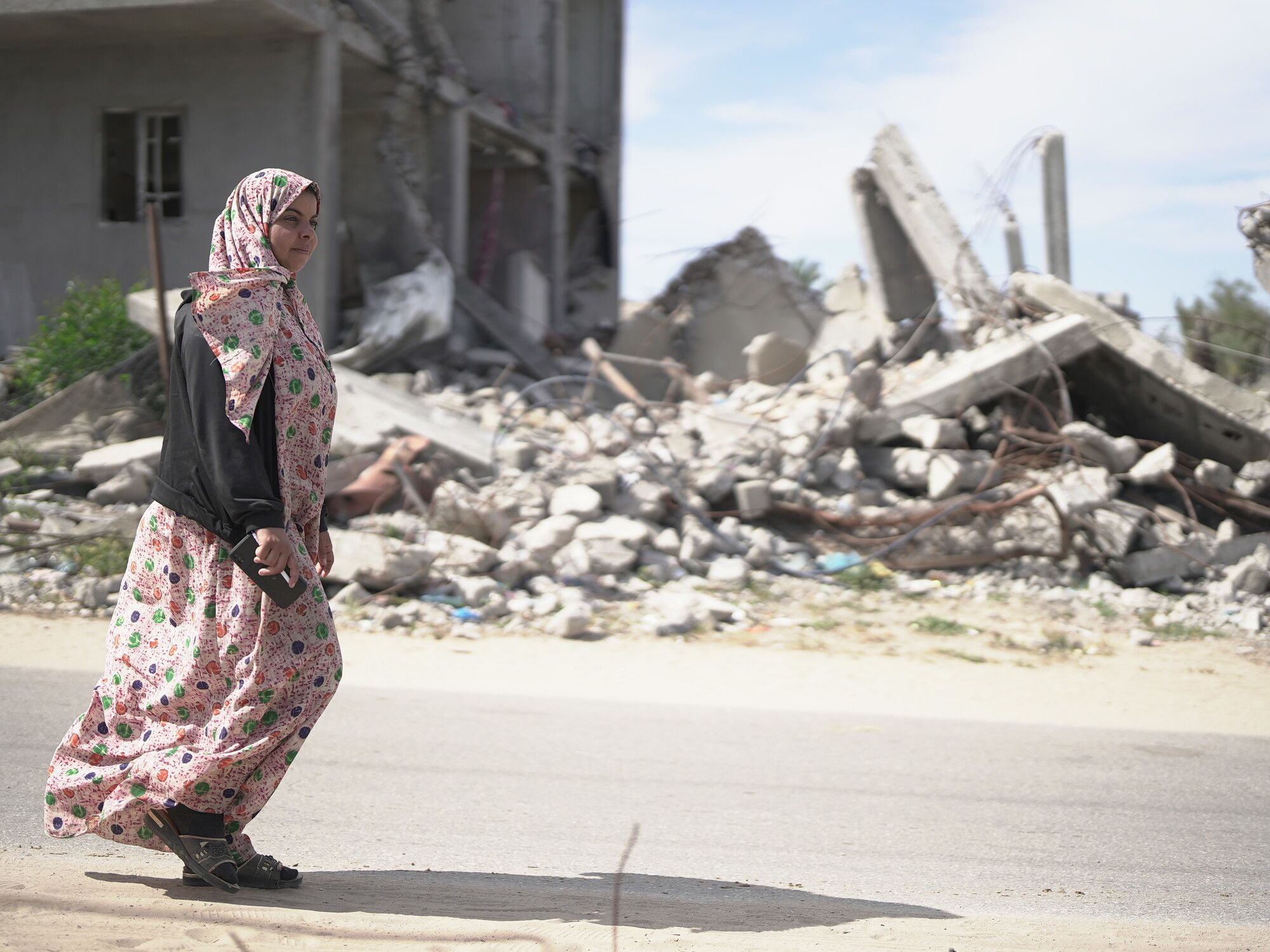
Through a long year of war, women and children have faced a devastating toll.
Oxfam analysis found that more women and children have been killed in Gaza by the Israeli military over the past year than the equivalent period of any other conflict over the past two decades.
Approximately 19,000 women have been injured and 3,000 widowed, resulting in significant challenges for them as they work to rebuild their lives and support their families.
Newly widowed women and orphaned girls face increased risks, as they struggle to survive with limited access to healthcare, food, and shelter. More than 177,000 women are currently facing life-threatening conditions due to the collapse of healthcare services.
Displaced women spend 2.9 hours a day collecting water and often ration food to survive on one or two meals a day. A lack of menstrual hygiene products as well as a lack of sanitation, resulting in hundreds of displaced people sometimes sharing a single toilet, impacts around 690,000 menstruating women and girls. This leaves them vulnerable to infections, and increases other health risks.
Nearly a million women and girls are now living in shelters with no privacy or sanitation, facing an increased risk of gender-based violence and exploitation.
Women report feeling overwhelmed by daily survival decisions, from finding food and shelter to medical care. The -limited availabilty of psychosocial support has worsened mental health conditions, leaving many women in crisis as they care for children and elderly family members.
In the past year, Oxfam has provided specialised protection assistance to groups with particular vulnerabilities including people with disabilities and women and girls, reaching 56,531 people.
Huwaida’s Story
Huwaida, a humanitarian and social worker, widow and mother of five, was forced to flee after airstrikes destroyed her neighbourhood and killed some of her relatives in October 2023. She was displaced to a shelter she helped to manage, providing care for 300 displaced people. The conditions were dire, with her and others sleeping on the floor, with no certainty of what they would eat or drink the following day.
Despite overwhelming challenges, women have shown exceptional leadership in both private and public spheres. Women are leading their communities, providing critical support to their families and neighbours. Huwaida shared the burden of securing food and water for everyone in the shelter.
She has been displaced six times since the onset of the war and her health is suffering – the house she recently left was bombed, while her son was just metres away. He now lives in a tent made out of tarpaulins and nylon sheets.
Huwaida is working as a case manager for orphaned children.
"We thought we would stay here for one night. Now we sleep on the floor, and I wonder what we will eat tomorrow."
